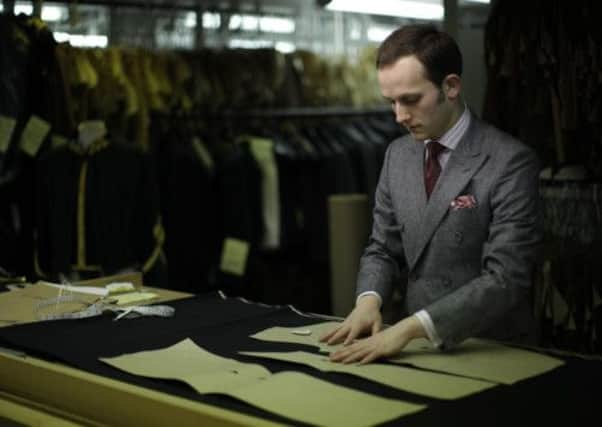Gieves & Hawkes measures up factories for UK homecoming


Gieves & Hawkes has confirmed that it is committed to returning production to its original home, although no decision has been made about the location.
The Yorkshire Post understands that if Gieves & Hawkes did establish a luxury tailoring production base in Yorkshire, it would be with a partner and not in its own name.
Advertisement
Hide AdAdvertisement
Hide AdIt is understood that the company is looking to have a tailoring operation close to its key fabric suppliers.
A number of the company’s fabric suppliers are based in Huddersfield and the Holme Valley.
Production was moved overseas like many Savile Row tailors.
Gieves & Hawkes has held Royal Warrants for more than 200 years. Famous names who have worn Gieves & Hawkes clothing have included the adventurer and explorer Robert Falcon Scott, who led an ill-fated expedition to the South Pole in 1912.
Advertisement
Hide AdAdvertisement
Hide AdToday, celebrities such as Sean Connery, Michael Caine and David Beckham also wear Gieves & Hawkes’ suits. The company is owned by Hong Kong listed Trinity, controlled by the Fung family, who also own Keighley’s Peter Black.
Yesterday, it was also revealed the Woolmark Company is launching a 35m Australian dollars (£22.82m) marketing campaign, which should provide a boost for Yorkshire’s textile industry. The campaign aims to increase demand for Merino wool in key markets, such as the UK, US and China.
The Woolmark Company is behind the Gold Woolmark campaign, which helps British mills to build business in China. Big brands such as Burberry, Prada, Yves Saint Lauren, Paul Smith and Chanel all source their wool in Yorkshire, and a boom in luxury wear has boosted the region’s industry. Today, there are up to 30 wool processing mills in Yorkshire, which includes scourers, spinners, weavers, dyers and finishers. At its peak, the UK’s textile industry, which was largely based in Yorkshire, had 130 mills working at full capacity.
Stuart McCullough, the chief executive of Australian Wool Innovation, which is the parent of The Woolmark Company, said: “Consumption of luxury goods is forecast for continued growth during these tougher economic times, just as it has over the last five years. This is the case for the UK, as well as more dynamic developing nations such as China and India.”
Advertisement
Hide AdAdvertisement
Hide AdAustralian Wool Innovation is a not-for-profit company owned by more than 29,000 Australian woolgrowers who provide between 85 and 95 per cent of the world’s apparel wool.
Seventy per cent of the wool textiles manufactured in the UK are exported, compared with 50 per cent in the 1980s.
In 2009, Britain produced 32 million kg of wool, a figure which increased to 40 million kg of wool in 2011, according to the UK Wool Marketing Board. Meanwhile, the value of the global wool clothing industry at the retailer level has increased by £220m, with global market value rising from £1.2bn in 2009 to £1.42bn in 2011.
Mr McCullough added: “It (Yorkshire) was the heart of wool production globally for a significant amount of time. There are mills that have hung on, and stuck to their core business. We’re really fond of these brands in the UK. We are keen to support them and make sure they’re a success.”
Advertisement
Hide AdAdvertisement
Hide AdThe Yorkshire textile manufacturers that have managed to grow their sales include Abraham Moon, which dates from 1837. The company employs 200 staff at its base in Guiseley, near Leeds. It has followed a successful strategy of diversification. In recent years it has moved into the furnishings market. It has two pieces of furniture in the White House.
Turnover has grown from arou-nd £9.8m in 2009 to £15m today.
John Walsh, the director at Abraham Moon, said: “Many mills collapsed, but the ones who survived adapted to the export market. We made commitments to design by putting large sums of the profits back into the company, into machinery and new techniques.”